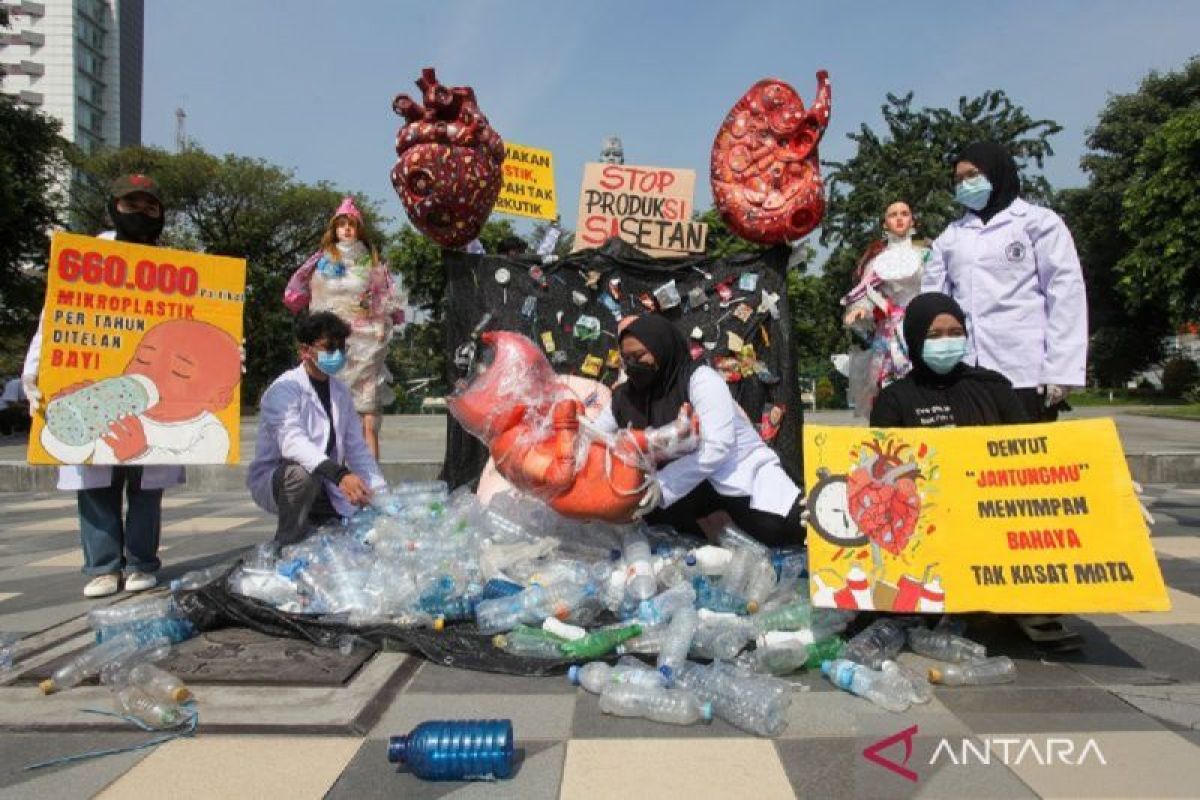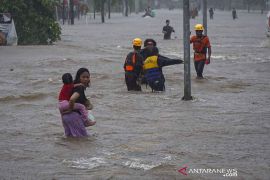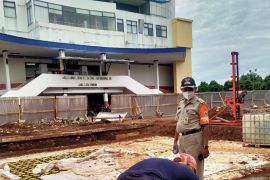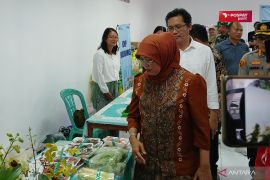It is estimated that people inhale 68,000 microplastic particles every day and some experts believe we are in the midst of a plastic health crisis, according to a research article published in the PLOS One open access journal.
Microplastics, defined as plastic particles less than 5 mm in size, have now been detected throughout the human body—including the blood, lungs, liver, lower limb joints, and even brain.
French plastics expert Professor Nathalie Gontard emphasized the danger of microplastics as they are toxic through various mechanisms, such as oxidative stress, metabolic disturbances, inflammation, neurotoxicity, and increased cancer risk.
Dangerous microplastic particles have been detected in Jakarta's rainwater, according to Indonesia's National Research and Innovation Agency (BRIN), following a years-long study of rain samples collected across the capital since 2022.
The microplastics come from synthetic fibers in clothes, vehicle and tire dust, residue from burned plastics, and degraded plastics in the open.
On average, the researchers found 15 microplastic particles per square meter per day in samples collected from Jakarta's coastal areas.
The agency explained that the microplastics result from atmospheric deposition, in which airborne plastic particles mix with the water cycle and fall back with the rain.
The finding underscores air pollution concerns, as the particles can enter the human body through air or water.
Alarming
The microplastics content found in Jakarta’s rainwater is alarming for the public.
In the long term, exposure to microplastics—which may contain hazardous chemicals—can cause hormonal disruption, inflammation, and respiratory problems.
Scientific data from abroad has clearly indicated the presence of microplastic particles in phlegm and even in human lung tissue—posing the real danger of this pollutant to health, chairman of the Indonesian Society of Respirology (ISR), Professor Tjandra Yoga Aditama warned.
Therefore, he recommended the government conduct research to determine the effect of microplastic pollution on the incidence of lung diseases such as asthma, chronic obstructive pulmonary disease, pulmonary fibrosis, and emphysema.
He also emphasized the need for research into how microplastics enter and spread in the human body and the mechanisms for clearing respiratory tracts exposed to microplastics.
Following the discovery of microplastics in rainwater samples, he expressed the need to minimize exposure to these pollutants during the rainy season.
Collaborative efforts
Jakarta has taken steps to tackle plastic pollution after the discovery of microplastic particles in the city's rainwater, emphasizing the need for an immediate and collaborative response.
To address the issue, the city government has tightened plastic waste control and integrated air and rainwater quality monitoring. It has also enforced a policy requiring green shopping bags, launched waste reduction programs, expanded waste banks, and promoted community-based plastic recycling initiatives.
Plastic reduction must start from the source—from households, industries, and service sectors, as everyone has their own role, according to Jakarta Environmental Service Head Asep Kuswanto.
The city administration is working with BRIN to expand microplastic monitoring in air and rainwater, which will be integrated into the Jakarta Environmental Data Integration (JEDI) platform.
The provincial government will also strengthen its public campaign "Jakarta Without Plastic in Air and Land" to encourage residents to reduce single-use plastic, sort waste at home and avoid burning garbage.
Burning garbage has proven to be a major source of urban air pollution and the release of microplastic particles into the environment.
Currently, the Jakarta government is seeking an innovative approach to curb the practice of burning garbage by balancing disciplinary enforcement with an educational approach so that sanctions are not only punitive but also encourage the community to be part of the solution.
Meanwhile, Environment Minister Hanif Faisol Nurofiq considered the finding of microplastics in rainwater falling in Jakarta underscored the urgent need to end open dumping practices at final waste disposal sites (TPA) across the country.
He added that the discovery of microplastics was unsurprising given Indonesia’s continued reliance on open dumping sites where waste is left unprocessed and exposed to the elements.
Jakarta’s waste is sent to the Bantargebang landfill in neighboring Bekasi, where years of unprocessed waste have accumulated. Exposure to sunlight, water, and heat accelerates plastic degradation, releasing microplastic particles into the environment, he explained.
Therefore, the government has begun tightening waste management oversight and transitioning gradually from open dumping to sanitary landfill systems.
The new systems involve covering waste with clay layers to prevent leachate contamination and installing methane gas pipelines to reduce emissions and fire risks. Officials expect the reforms to curb microplastic pollution compared with leaving waste exposed.
The government, businesses, research institutions, and environmental groups must indeed join hands in reducing plastic pollution and developing waste recycling innovations.
However, the most significant effort must be carried out by every individual by raising their awareness to reduce the use of plastics in everyday life—thus minimizing the impact of waste on our health.
Professor Gontard suggested shifting to reusable products, such as biodegradable plastics, as a better option.
The best way to stop fueling the problem is to buy carefully, she said in a publication by the University of Auckland.
Replacing plastic toys with wooden alternatives, plastic bags with reusable cotton bags, and polyester cloths with woolen fabric must be a conscious choice we make every day in combating the real danger of plastic waste.
Related news: Minister urges waste action after microplastic found in Jakarta rain
Related news: Microplastics can enter human body through several ways: Expert
Editor: Rahmad Nasution
Copyright © ANTARA 2025












